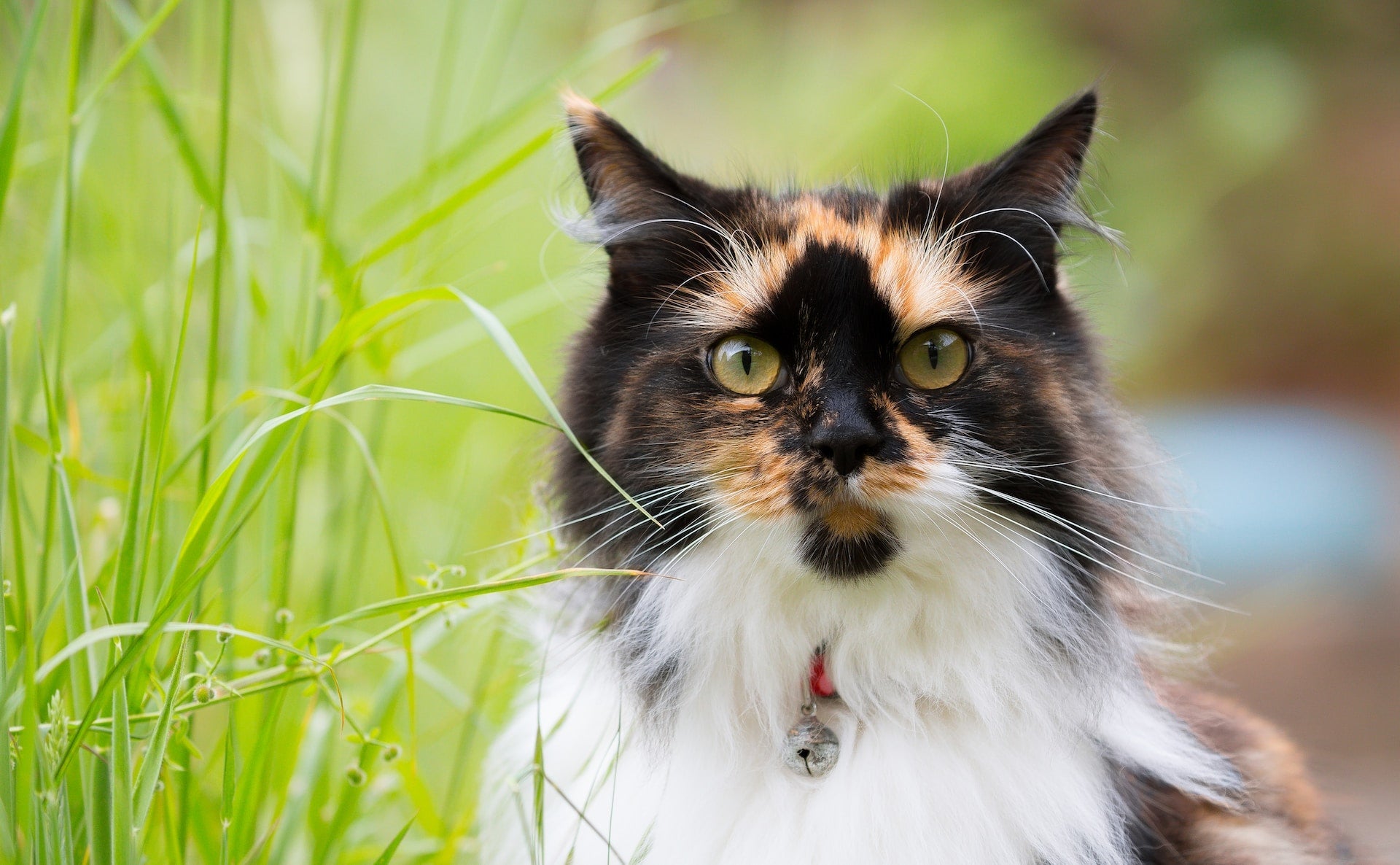If you’re a new cat owner or will be collecting a new cat or kitten soon, knowing what to feed them – and when – is critical.
Of all the decisions you make for your pet, choices around their diet are probably the most important. Because they’ll certainly let you know if they’re not happy about it!
So, what’s the best food for cats? What should you feed your cat? How often? What’s the best diet for cats? What is the best food for kittens?
We’re not going to make product recommendations in this post, as each cat has different tastes. We’ll show you how to choose the best cat food for your favourite feline though!
Why cat nutrition matters
Cat nutrition matters in the same way it matters for humans. Our bodies need a wide range of nutrients to remain healthy and for our body to perform essential functions.
Kittens need more energy and nutrition as they grow from kitten to cat. Older cats need good nutrition to help keep them healthy, strong and ready to play.
The higher the nutritional value of the cat food you choose, the more resources your little friend will have to remain healthy and live their best life.
How to choose a quality cat food
As we’ve said, we won’t be making product recommendations here. Instead, we’ll share how we choose quality cat food.
Kittens and cats need a good balance of:
- Protein
- Carbohydrates
- Amino and fatty acids
- Vitamins and minerals, including vitamins A, B, C, B12, folic acid, calcium, phosphorus, iron, magnesium, sodium and zinc.
We recommend buying the highest quality cat food or kitten food you can afford. We know times are tough, but the health and well-being of your furry friend depends upon the choices you make.
Quality cat food will include better quality ingredients and fewer fillers and derivatives.
As for types or brands of food, check for UK Pet Food membership on the label. It’s like a quality standard in the UK.
To find out more about what other pet owners like, you can read reviews. And always check the nutritional information on the tin or packet to make sure it’s a ‘complete’ food.
You can use separate food types if you like, but a complete food gives your cat everything they need in one meal.
What is the best food for kittens?
The best food for your kitten is a complete cat food with all the nutrients they need to grow. Most kittens prefer wet food to begin with and we suggest going along with that.
We recommend feeding them kitten food for their first year as it will have the nutrients and extra energy kittens need.
What should you feed your cat?
After they’ve had their first birthday, you should be able to switch your cat to adult food. Adult cats can also eat wet or dry food. And pay extra attention, as they won’t be shy about sharing their preference. So let them guide you!
Feeding the right amount
Aside from the quality of food, the amount you feed your cat is also important.
It’s as important to not overfeed a kitten or cat as it is to not underfeed them.
If this is your first kitten, you’ll quickly notice they seem constantly hungry. They will eat whatever you put down for them, in whatever volume you put down!
It’s up to you to control their portion size – and it’s vital you do so.
Feed them too much and they can get sick. Feed them too little and they won’t have the nutrition to help them grow and play.
That’s why using the feeding guidelines on the tin or packet of food is really helpful. Feel free to adjust up or down slightly as you see fit, but don’t go too far from those recommendations.
Cats control their intake fairly well, but they are still able to eat too much if you put food down for them.
Again, feed according to the feeding guide on the tin or packet. Some cats prefer to graze, while others prefer set mealtimes. Your cat will prefer one or the other, so go with that.
If you work or aren’t home during mealtimes, consider using a cat feeder to help control portions. All you have to do is dispense the correct portions in the feeder and time them for your friend’s usual mealtimes. Quick and easy!
Common diet questions for cats and kittens
Here are some common cat and kitten diet questions we often see and our answers:
Can cats eat a vegetarian diet?
No, cats cannot be vegan or vegetarian. They are obligate carnivores. That means they need meat in their diet because it contains essential nutrients they cannot get elsewhere.
Cats have evolved from hunters and their systems need meat, so no matter the diet you choose for yourself, you must make sure they have meat in their diet to keep them healthy.
Can I feed my cat a raw food diet?
Technically yes, you can feed your cat a raw food diet, but we wouldn’t recommend it. You could feed them complete cat food and supplement it with raw food if you like though.
Even though cats were hunters, they need more than just meat or raw vegetables. They need the full rainbow of nutrients just like we do. A raw food diet just doesn’t deliver that.
Is milk or cream safe for my cat or kitten?
Whether milk or cream is safe for cats or not is still being debated. Some say cats are lactose intolerant, while some cats go crazy for a saucer of milk or cream.
We would say go carefully with dairy until you know for sure which side of the fence your cat is on. If they are sick or aren’t their usual lively selves afterwards, stop feeding them dairy sharpish.
What’s the best food for cats?
The best food for cats is the food they enjoy eating the most! Of course, we want them to enjoy their mealtimes in the same way we do, for the same reasons we do.
If your little friend has all the energy and nutrition they need, they can live their best life. They can run, play and have their mad five minutes and still have enough energy left to curl up on your lap and go to sleep.
Can kittens eat adult cat food?
Kittens should not eat adult cat food. It shouldn’t do them any harm, but it won’t have the balance of energy and nutrients they need.
Kitten food is designed to be easy to digest and be fed little and often. It has more energy, more protein and a mix of the nutrients they need to grow. Cat food will have different levels and may not be enough for a kitten.
Tips for picky eaters
If your cat or kitten isn’t demolishing their dinner in the way you’d expect, it could be down to a number of things.
Here are some things to check:
- Make sure the cat bowl is cleaned after every meal
- Make sure their dinner isn’t close to their water or litter tray
- Ensure they have a quiet, safe place to eat their dinner
- Try a different flavour or brand of food
- Change wet for dry or vice versa – but switch slowly, not all at once
- Try switching between set mealtimes and grazing
- Make sure no other cats are around or stealing food
- Make sure your cat hasn’t found food elsewhere
- Use an interactive feeding toy to turn mealtimes into a game
- Try adding a little water to the food
- Try to feed at the same time every day – use a cat feeder if you work
- Use positive reinforcement to encourage them to eat
- Visit a vet to make sure it’s nothing medical
That’s 13 ways to help tackle picky eaters. There’s sure to be something there that will encourage them to eat, but if you’re still worried, make sure you speak to a vet for personalised advice.
Best diet for cats
Getting your cat’s diet right is the best thing you can do for them. It sets them up for life and gives them the energy to turn from kitten to cat, to run, play, chase and live life to the max.
If you’re just getting to know your first kitten or cat, we hope this guide gives you all the information you need to give your cat the best life possible.
Remember, if you have any doubts or issues getting your cat to eat, check with your vet. There’s no such thing as being too careful when it comes to our favourite felines!

